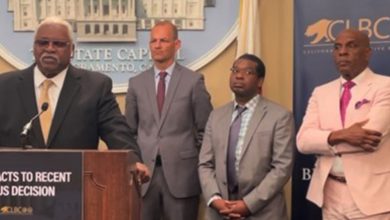California Students Make Progress in Key Academic Areas, But Challenges Remain

By Joe W. Bowers, California Black Media
A new study from Harvard Kennedy School and the University of California, San Francisco, says that California’s $20-per-hour minimum wage for fast food workers has led to significant pay increases without causing reductions in jobs, work hours, or benefits. The findings, based on data collected since the wage law took effect in April 2024, show that fast food workers across the state experienced hourly wage increases of at least $2.50, with the number of workers earning less than $20 per hour dropping by 60 percentage points.
“We find no evidence that wage increases had unintended consequences on staffing, scheduling, or wage theft,” the study reports. The researchers found that work hours were stable on a week-to-week basis, and there was no reduction in employee benefits, such as health insurance or paid time off. Instead, the fast-food industry added 11,000 jobs between April and July 2024, bringing the total number of fast-food jobs in the state to 750,500 — the highest level on record.
Assembly Bill 1228, authored by Assemblymember Chris Holden (D-Pasadena), not only raised the minimum wage to $20 per hour but also established the Fast-Food Council to oversee wages, working conditions, and health and safety standards for fast food workers. During the signing of AB 1228, Holden stated, “We did not just raise the minimum wage to $20 an hour for fast food workers. We helped a father or mother feed their children, we helped a student put gas in their car, and helped a grandparent get their grandchild a birthday gift”
The study contradicts claims from the fast-food industry, which had expressed concerns that the wage increase would mean layoffs, a cut in service hours, and an increase in menu prices. However, the study found no significant changes in employment levels, work schedules, or benefits. According to the report some challenges, like underemployment and unpredictable scheduling, remain but existed prior to the wage hike.
Gov. Gavin Newsom has previously voiced strong support for the wage increase, saying, “We’re ensuring that workers in fast food — the backbone of many families — can actually afford to live in the communities where they work.”
The study’s findings align with earlier research from UC Berkeley’s Institute for Research on Labor and Employment, which showed no significant reduction in employment and only a modest increase in menu prices.
The study’s results highlight that California’s approach to raising the minimum wage has delivered higher pay for workers without the negative effects some had predicted, providing economic stability for thousands of fast-food workers across the state.




